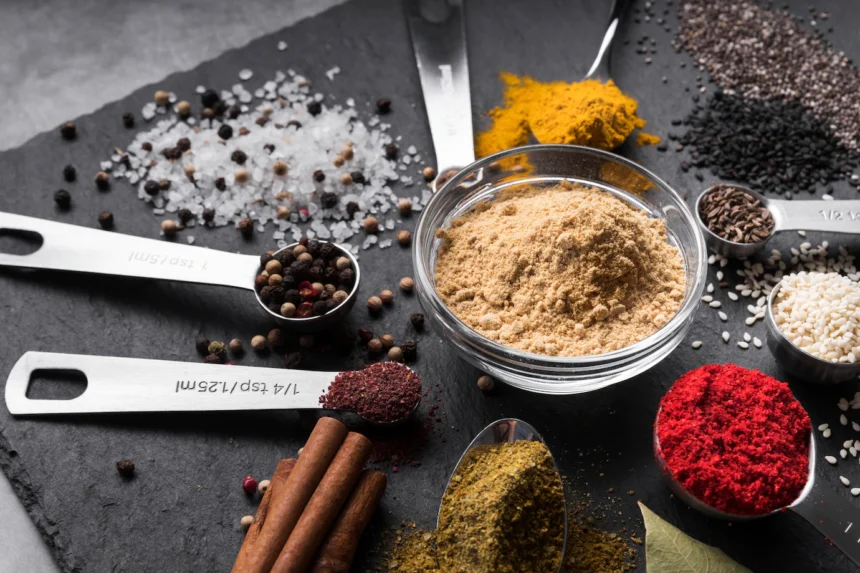Herbs and spices are an essential part of South African cuisine, adding unique flavors and aromas to dishes while also offering various health benefits. South Africa’s diverse climate and rich soil provide favorable conditions for growing a wide range of herbs and spices, many of which are native to the region. Let’s explore some popular herbs and spices cultivated in South Africa and their associated flavors and health benefits.
- Rooibos (Aspalathus linearis): Rooibos is a herb indigenous to the Cederberg region of South Africa. It is renowned for its vibrant red color and is used to make a flavorful herbal tea. Rooibos tea is naturally caffeine-free and rich in antioxidants, making it a healthy alternative to traditional tea. It is believed to have anti-inflammatory properties, support digestion, and promote overall well-being.
- Buchu (Agathosma betulina): Buchu is an aromatic shrub native to the Western Cape of South Africa. Its leaves are used as a flavoring agent in traditional dishes, teas, and tinctures. Buchu is known for its diuretic and antiseptic properties and has been used historically to treat urinary tract infections, stomach ailments, and rheumatism.
- Cape Malay Curry: The Cape Malay community in South Africa has a distinctive cuisine influenced by Indonesian, Malaysian, and Indian flavors. Cape Malay curry is a blend of various spices such as turmeric, coriander, cumin, cinnamon, cardamom, and cloves. This aromatic curry is known for its rich flavors and mild to medium spiciness. The spices used in Cape Malay curry are believed to have anti-inflammatory and digestive benefits.
- Peri-Peri (African Bird’s Eye Chili): Peri-Peri, also known as African Bird’s Eye Chili, is a fiery chili pepper that is widely used in South African cuisine. It is used to make spicy sauces, marinades, and rubs for grilled meats, particularly chicken. Peri-Peri is known to contain capsaicin, which is believed to have metabolism-boosting properties and potential pain relief.
- Buchu, Honeybush, and African Wormwood: These indigenous herbs are often used in traditional herbal teas for their medicinal properties. Buchu is known for its anti-inflammatory and diuretic effects, while Honeybush is rich in antioxidants and has potential immune-boosting properties. African Wormwood is believed to have digestive and antimalarial properties.
- Imphepho (Helichrysum odoratissimum): Imphepho, also known as African Sage, is an aromatic herb used in traditional rituals and as a medicinal plant. It is burned as incense to cleanse spaces and promote relaxation. Imphepho is believed to have antimicrobial, anti-inflammatory, and mood-enhancing properties.
- African Ginger (Siphonochilus aethiopicus): African ginger is a type of ginger with a unique flavor profile, often described as being less pungent than the common ginger. It is used in cooking and also has a history of medicinal use. African ginger is believed to have anti-inflammatory and digestive properties.
When cultivating herbs and spices in South Africa, it’s essential to consider the specific requirements of each plant, including sunlight, water, and soil conditions. Many of these plants can be grown in home gardens or on a larger scale in farms across the country, contributing to local culinary traditions and promoting the sustainable use of indigenous plants.
Join 'Farmers Mag' WhatsApp Channel
Get the latest Farming news and tips delivered straight to your WhatsApp
CLICK HERE TO JOIN






